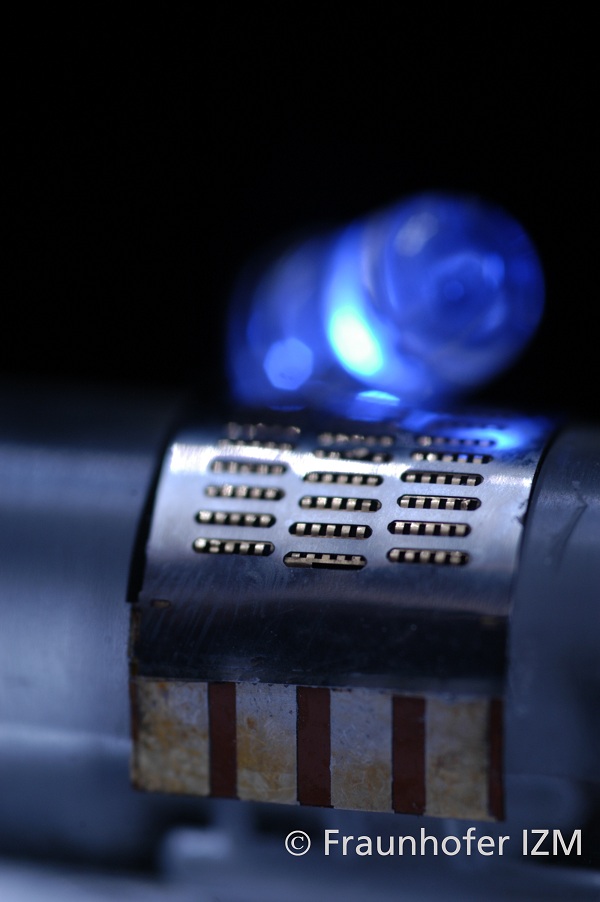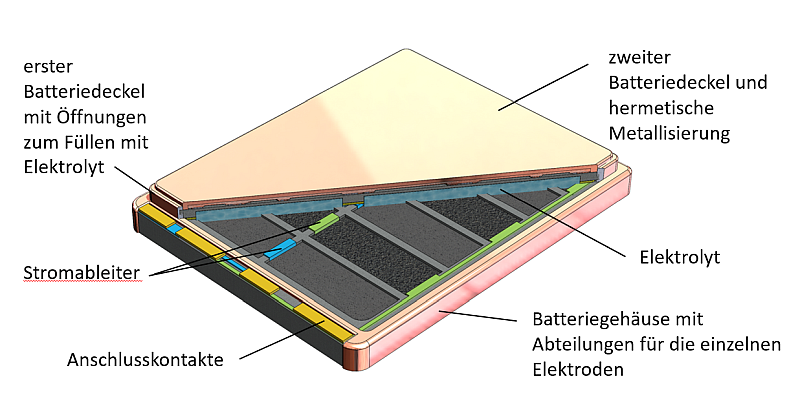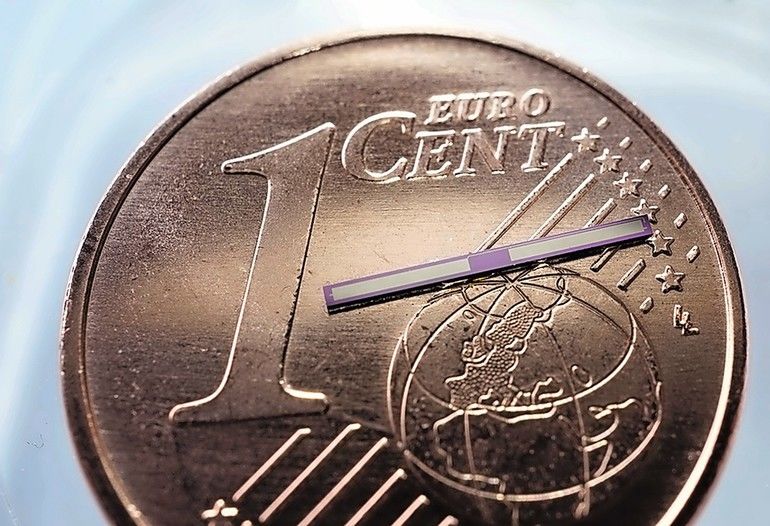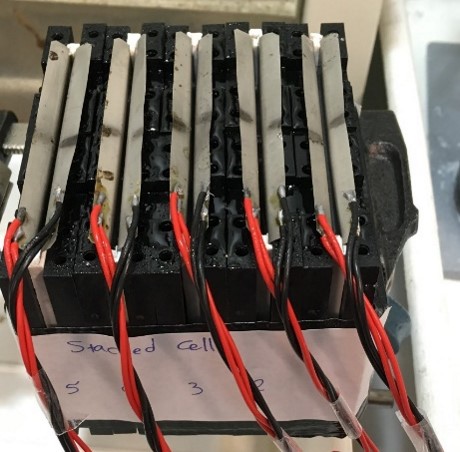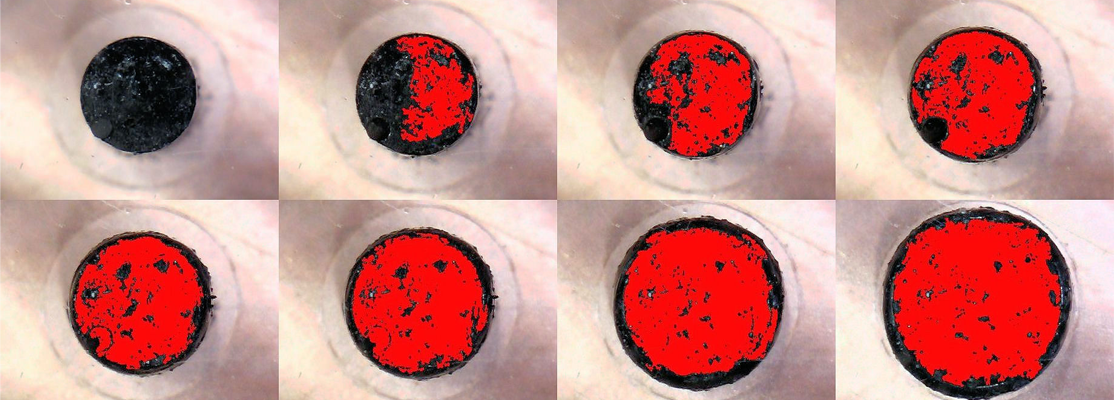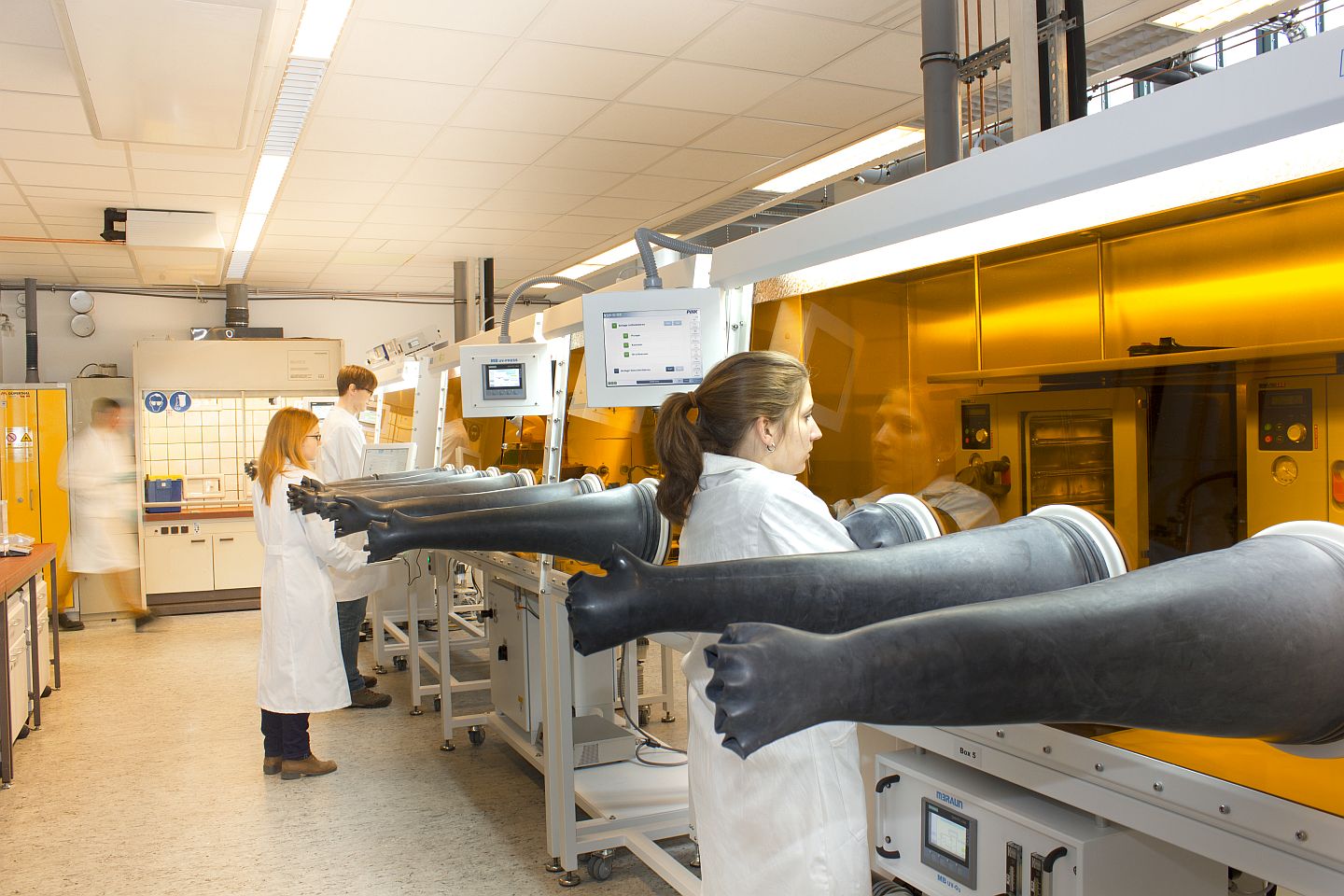In the Micro Energy Systems Group at Fraunhofer IZM, electrochemists, materials scientists and physicists work together with electronics engineers on an interdisciplinary basis to provide adapted power supplies for the microsystems developed at the institute and to exploit the diverse technological possibilities in the area of silicon-wafer-level integration at IZM in order to develop miniaturized batteries and converters. The development focus is on integrated micro-batteries and the smallest solar modules for energy-autonomous sensors and data loggers. The developments are supported by numerical simulations. The group is also involved in material development projects for new battery systems such as Li-metal batteries and solid-state batteries.
The smallest micro-batteries (rechargeable and primary) with customer specific requirements can be developed and manufactured as prototypes in quantities up to approximately 10,000 pieces.
Another focus of the group is the development of zinc-based energy storage devices, which can generate both hydrogen and electricity on demand and are highly relevant to the energy transition.
The group also provides testing and consultancy services for all types of electrochemical storage. Laboratories are available for the production and characterisation of battery electrodes and electrolytes, as well as a prototype line for the prototype fabrication of micro-batteries. More than 30 patents have been filed in the field of micro energy systems.
 Fraunhofer Institute for Reliability and Microintegration IZM
Fraunhofer Institute for Reliability and Microintegration IZM